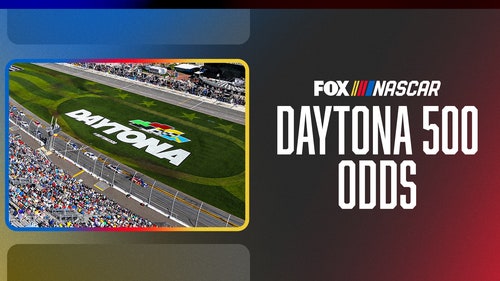
Where do NASCAR, teams stand in charter extension talks? 'We're going to figure this out'
LOS ANGELES — NASCAR and its teams are set to open the 2024 Cup Series season with the exhibition Clash at the Los Angeles Memorial Coliseum this weekend.
They enter it without an extension for the charter agreement — NASCAR’s version of a franchise — beyond the 2024 season.
The charters — there are 36 — provide several benefits for the teams:
--It guarantees them a spot in each of the races.
--It guarantees teams a certain amount of money each year, based on showing up for each race, the past three years’ performance of the charter and past championships. It also sets the payouts for each finishing position.
--Because of those first two benefits, the charters are an asset that help teams attract sponsors (who don’t want to miss a race), encourage investment (from investors who want to project revenues) as well as encourage sales to people looking to get into the sport or add teams (wanting that guaranteed spot).
Charters, which were being sold for $2-$6 million for several years after being instituted in 2016, have gone for reportedly as much as $40 million last year.
The teams want a higher share of NASCAR’s media revenues (under the current distribution, 25 percent of the broadcast revenues are earmarked to be part of the monies paid by NASCAR to the teams as part of the charter agreement).
Talks lagged in 2023, partly because teams and NASCAR didn’t know broadcast revenues until a new broadcast package was completed.
NASCAR President Steve Phelps, after the 2025-2031 television rights packages were announced in late November, said he wasn’t sure how long it would take to get the deal done.
"I don’t know exactly when we’re going to get it done," Phelps told FOX Sports. "The teams and ourselves are committed to doing that. ... We’re eager to get it done. They’re eager to have it done.
"What we’re going to see from a charter extension is what is going to be in the best interest of the sport and to have healthy race teams."
There probably are different views of what that looks like. Teams theoretically could try to race for a different series if a deal isn’t reached, but NASCAR owns more than half the tracks and most of the other big tracks rely on NASCAR for their biggest events. Under the new television deal, tracks likely will make $15-20 million in television revenue per Cup weekend — so they likely wouldn’t be willing to jeopardize those NASCAR relationships.
Brad Keselowski and Denny Hamlin, both drivers and co-owners of their teams, told FOX Sports in mid-January that they don’t expect a deal to get done soon.
"At the end of the day, I'm confident we're going to show up at Daytona in 2025 and race," Keselowski said. "I know I'll be there. We might be racing wheelbarrows, but we're going to be racing and it's going to be a great race.
"So I tell all the fans that might be listening or watching, ‘Don't worry about this. We're going to figure this out.’"
That doesn’t mean Keselowski has a no-worry attitude as the negotiations continue.
"You’d be a fool to not be somewhat concerned," Keselowski said. "But the reality is we're in January of ’24, and this deal doesn't need to get done until February of ‘25.
"Everybody would like for it to be done. But it really doesn't need to be done earlier than that."
It kind of does in the sense that teams would want to set budgets. And teams looking to expand or prospective new owners who want to buy charters need to see a deal done well before next February.
"It's been a slow process to try to get any answers and transparency where we need it," Hamlin said. "It’s going to take some time and it's just a matter of how long NASCAR wants to drag it out.
"I’ve been in negotiations before, but you worry about deal fatigue a little bit. ... But this is typically the way it's been between NASCAR and the teams for so many years. It’s just tough to get the two sides to agree on a lot of issues."
The difficulty is that NASCAR is under no obligation to disclose all of its revenues to the teams, so it is difficult for teams to know the real percentage of NASCAR revenues they are getting. Obviously, there is more to it than broadcast revenues as NASCAR sells tickets, sponsorships, merchandise, etc.
"Once you figure out the financials — and there has to be transparency to figure out the financials — then you could work on all the other language," Hamlin said.
Keselowski said negotiations are tough.
"The biggest thing is for the team owners being able to hold value and to justify investing deeper in the sport and attract partners and probably most importantly of all is take care of our employees," Keselowski said.
"And those are really the questions — are we going to be able to do those things?"
Bob Pockrass covers NASCAR for FOX Sports. He has spent decades covering motorsports, including over 30 Daytona 500s, with stints at ESPN, Sporting News, NASCAR Scene magazine and The (Daytona Beach) News-Journal. Follow him on Twitter @bobpockrass.



